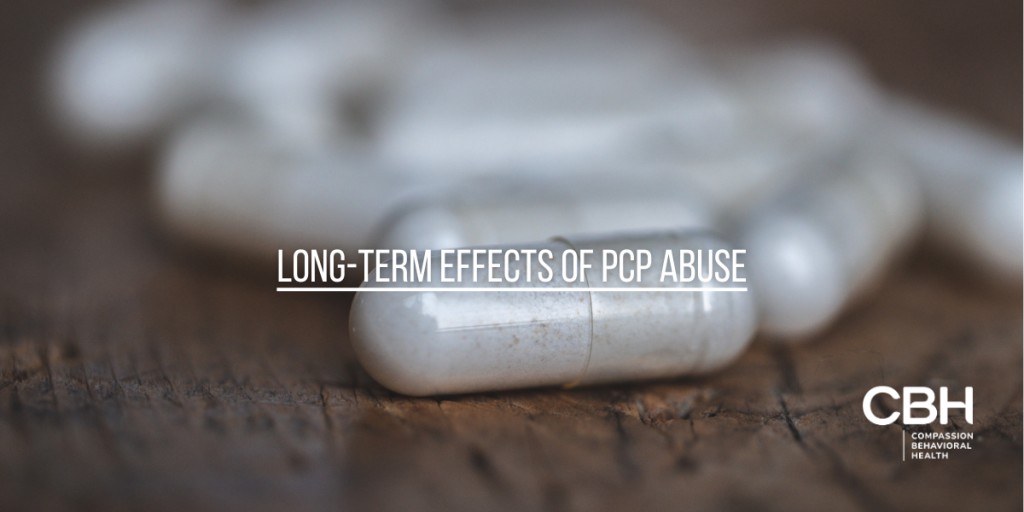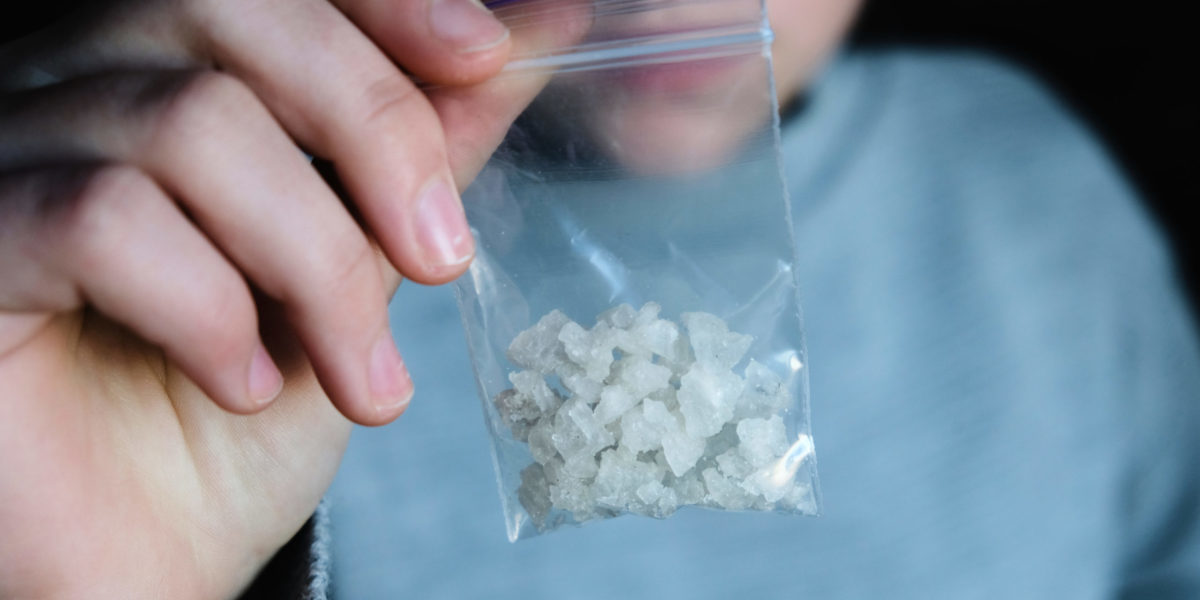PCP, or phencyclidine, is a powerful hallucinogenic drug that can have severe long-term effects on individuals who abuse it. Understanding the consequences of PCP abuse is crucial to raise awareness and provide support for those affected. This article will delve into the various aspects of PCP abuse and its long-term effects, including its chemical composition, prevalence, immediate and long-term physical and psychological effects, as well as treatment and recovery options.
Understanding PCP and Its Use
PCP, also known as angel dust, is a synthetic drug that was originally developed as an anesthetic in the 1950s. However, due to its unpredictable effects and potential for abuse, it was discontinued for medical use in humans. PCP can be found in powder, liquid, or tablet form and is usually ingested orally, inhaled, or injected. Its intense hallucinogenic properties make it appealing to individuals seeking a distorted sense of reality.
Individuals who consume PCP may experience a wide range of effects, including altered perceptions of time and space, distorted sensory experiences, and feelings of detachment from reality. These effects can be both fascinating and terrifying, leading to a high potential for psychological distress and dangerous behavior.
The Chemical Composition of PCP
The chemical structure of PCP is complex, consisting of an aromatic ring system attached to a piperidine ring. These structural components contribute to PCP’s hallucinogenic properties by interacting with certain receptors in the brain, primarily the N-methyl-D-aspartate (NMDA) receptor.
When PCP binds to the NMDA receptor, it disrupts normal neurotransmitter activity, leading to the hallucinations and dissociative effects commonly associated with the drug. This interference with brain function can result in a wide range of cognitive and perceptual distortions, making PCP a potent and potentially dangerous substance.
The History and Prevalence of PCP Use
PCP gained popularity in the 1960s and 1970s as a recreational drug due to its dissociative effects. However, its use declined in the following decades as its dangerous nature became more widely known. Today, PCP abuse remains a concern, particularly in certain communities and among certain demographics.
Despite efforts to control its distribution and educate the public about its risks, PCP continues to be a drug of abuse in various parts of the world. Its illicit production and distribution pose significant challenges to law enforcement and public health authorities, highlighting the ongoing need for comprehensive strategies to address substance abuse and addiction.
The Immediate Effects of PCP Abuse
PCP abuse leads to immediate and profound effects on individuals, both physically and psychologically. Understanding these effects is crucial for grasping the potential long-term consequences of PCP abuse.
PCP, also known as phencyclidine, is a powerful hallucinogenic drug that can have devastating effects on the body and mind. The immediate impact of PCP abuse can be overwhelming, with individuals experiencing a wide range of physical and psychological symptoms that can be both alarming and dangerous.
Physical Consequences of PCP Use
The physical effects of PCP use can be alarming. Individuals may experience
- Elevated heart rate,
- Increased blood pressure
- Heightened body temperature.
- Seizures
- Muscle rigidity
- Motor disturbances
Severe intoxication can lead to respiratory depression, coma, and even death in some cases.
Additionally, long-term PCP abuse can result in
- Weight loss
- Malnutrition
- Physical deterioration
Chronic use of PCP can have a significant impact on the body’s immune system, leaving individuals more susceptible to infections and illnesses. The toll that PCP takes on the physical health of users is profound and can lead to long-lasting consequences.
Psychological Impact of PCP Abuse
PCP’s influence on the mind can be equally distressing. Users may exhibit signs of agitation, confusion, and paranoia. Delirium and hallucinations, both auditory and visual, are also frequent effects. PCP-induced psychosis is a notable concern, as it can lead to dangerous behavior and self-harm.
Furthermore, the psychological effects of PCP abuse can extend beyond the immediate high, causing long-term cognitive impairments and mental health issues. Prolonged use of PCP can result in memory loss, difficulty concentrating, and mood disorders. The psychological toll of PCP abuse can be devastating, affecting not only the individual but also their relationships and overall quality of life.
The Long-Term Physical Effects of PCP Abuse
While the immediate effects of PCP abuse are concerning, the long-term physical consequences can be equally devastating. Prolonged use of PCP can have severe implications on various bodily systems.
It is important to note that the impact of PCP abuse is not limited to just the central nervous system and cardiovascular system. The long-term effects of PCP abuse can also manifest in other parts of the body, leading to a myriad of health issues.
Impact on the Central Nervous System
The central nervous system bears the brunt of the long-term effects of PCP abuse. Chronic PCP use can lead to significant disruption in brain chemistry, impairing cognitive function, memory, and attention span. Changes in mood regulation and executive functioning are also observed.
Furthermore, long-term PCP abuse can result in structural changes in the brain, affecting neural pathways and neurotransmitter levels. These alterations can have lasting effects on an individual’s mental health and overall well-being.
Effects on the Cardiovascular System
PCP abuse can cause long-term damage to the cardiovascular system. Elevated blood pressure and increased heart rate can strain the heart, leading to conditions such as hypertension and cardiovascular disease. Prolonged PCP abuse may also contribute to the development of arrhythmias and other cardiac complications.
In addition to cardiovascular issues, long-term PCP abuse can also impact respiratory function. Inhalation of PCP smoke can damage the lungs over time, increasing the risk of respiratory infections and chronic respiratory conditions.
PCP and Organ Damage
Long-term PCP abuse can result in organ damage and dysfunction. Kidney and liver damage, as well as gastrointestinal issues, are common among chronic users. Additionally, PCP abuse may compromise the immune system, making individuals more susceptible to infections and illnesses.
It is crucial for individuals struggling with PCP abuse to seek help and support to mitigate the long-term physical effects of this dangerous substance. Early intervention and comprehensive treatment can help prevent further damage and improve overall health outcomes in the long run.
The Long-Term Psychological Effects of PCP Abuse
Not only does PCP abuse take a toll on the body, but it also has profound and lasting impacts on mental health.
PCP and Mental Health Disorders
Chronic PCP abuse can contribute to the development or exacerbation of mental health disorders. Individuals may experience persistent anxiety, depression, and psychotic symptoms even after discontinuing use. Co-occurring substance use disorders and PCP-induced mood disorders are also common.
Cognitive Impairment Due to PCP Abuse
PCP abuse can have a significant impact on cognitive abilities. Chronic users may experience difficulties with concentration, problem-solving, and decision-making. Memory impairment and decreased overall cognitive functioning are also observed.
Treatment and Recovery from PCP Abuse
Despite the challenges associated with PCP abuse, treatment and recovery are possible with the right intervention and support.
Detoxification and Medical Intervention
Professional detoxification is often necessary to safely manage withdrawal symptoms associated with PCP abuse. Medical intervention, including pharmacotherapy and close monitoring, may be required during this initial phase of treatment.
Therapy and Counseling Approaches
Psychological therapy plays a vital role in addressing the underlying factors that contribute to PCP abuse. Cognitive-behavioral therapy (CBT), individual therapy, and group therapy are commonly utilized to help individuals develop healthier coping mechanisms and address the psychological impact of PCP abuse.
The Role of Support Groups in Recovery
Support groups, such as Narcotics Anonymous (NA), can be instrumental in the recovery process. These groups provide a supportive environment where individuals can share their experiences, build a network of sober individuals, and receive ongoing guidance and encouragement.
Conclusion
PCP abuse carries severe and long-lasting consequences, both physically and psychologically. Awareness of the chemical composition, prevalence, immediate and long-term effects of PCP abuse is crucial in order to support those affected and promote prevention. By understanding the wide-ranging impact of PCP abuse, we can work towards creating effective treatment and recovery options that address the unique challenges faced by individuals struggling with this dangerous drug.
PCP Abuse Treatment at CBH
Treatment for PCP addiction at Compassion Behavioral Health emphasizes a personalized approach, integrating medical intervention, psychological therapy, and comprehensive support to address both the physical and psychological aspects of addiction. By offering a range of services, including individual counseling, and group therapy, Compassion Behavioral Health aims to provide a holistic path to recovery, fostering resilience and long-term well-being for those struggling with PCP abuse. Call us today to learn more about our PCP addiction treatment program.



